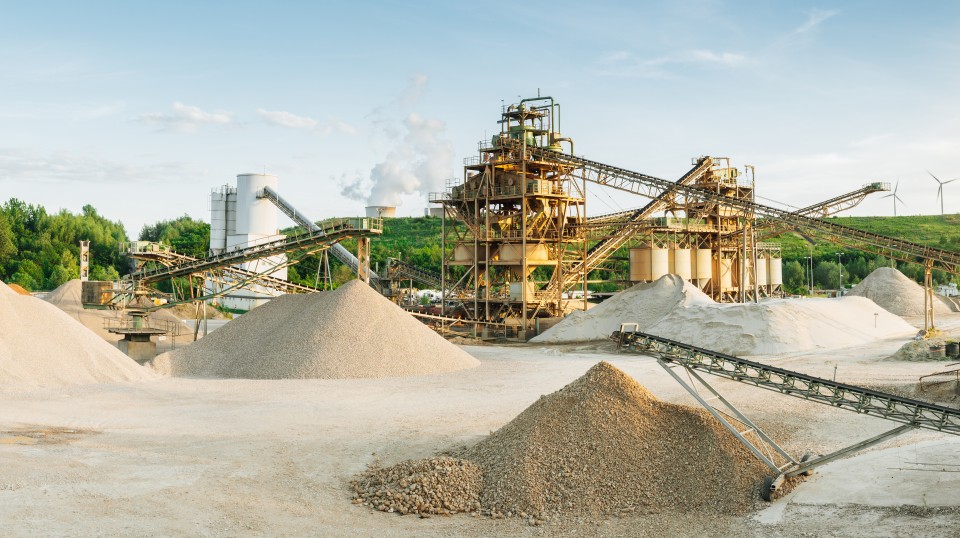Innovative raw material chains and circular cycles are becoming increasingly important
Raw materials are currently becoming increasingly expensive and scarce on the international market. That is why the Ministry of Economic Affairs conducted a study to examine the supply of the industry in North Rhine-Westphalia with the most important primary and secondary raw materials up to 2035 and highlighted the importance of the circular economy as resources become increasingly scarce.
The results of the raw materials study prepared by the RWI - Leibniz Institute for Economic Research are now available and create a sound basis for the development of a sustainable and future-oriented raw materials strategy for NRW.
Minister of Economics and Digital Prof. Dr. Andreas Pinkwart: “The pandemic has severely disrupted international supply chains. As the global economy restarts, raw materials and materials are now significantly more expensive and sometimes unavailable, making it difficult for industry to meet the high demand. The pandemic is not the only cause of this. The key industries in North Rhine-Westphalia are facing a fundamental transformation with major impacts on raw material requirements and are particularly affected by market movements. Only with a future-oriented, effective raw materials policy can we ensure the preservation of industries and the successful establishment of future technologies.”
Key findings of the report
- The prices of metallic raw materials began to rise significantly during the Corona pandemic. For the NRW industry, rising metal prices are a burden that could influence economic recovery and technological transformation.
- Of the raw materials that will be particularly relevant for the future technologies of NRW's key industries, 20 pose a high risk and 15 pose a medium risk. The reasons for this are the future development of demand as well as the concentration and political stability of the producing countries. In addition to rare earths and battery raw materials, this also includes bulk raw materials such as titanium or zinc.
- The key industries in North Rhine-Westphalia are facing a transformation that will impact raw material requirements: the chemical and metal industries must convert their energy base to green hydrogen, automobile manufacturers must introduce electrified drives, and the electrical and electronics industries as well as mechanical engineering must switch to future technologies.
- There is an export surplus for non-metals. Stones and earth were exported from North Rhine-Westphalia worth a good 300 million euros in 2020, which corresponds to a quarter of German exports in this area. About half of this was gravel and sand, which was exported primarily to the Netherlands and Belgium.
In order to continue to have the required materials in the future, more secondary raw materials must be used - as reprocessed materials of high quality. This makes the circular economy very important.

“The study clearly shows the need and advantages of a circular economy, in which we use resources sparingly through innovative cycles. North Rhine-Westphalia has all the prerequisites to become a pioneer in this area. As a state government, we want to contribute to this development by further developing the legal framework and effectively promoting research.”
Prof. Dr. Andreas Pinkwart: Minister of Economics and Innovation
For most raw materials that will be particularly relevant for North Rhine-Westphalia's key industries in the future, the substitution and recycling rates are currently still relatively low. Potential for secondary raw materials arises primarily from the recycling of end-of-life products and aims to return the raw materials they contain to the material cycle. Losses of raw materials can also be reduced by developing efficient circular systems and curbing scrap exports. A strong circular economy requires recyclable product designs, expanding the collection of recycled materials, improving recycling technologies and expanding recycling capacity.
The raw materials report also develops recommendations for action in other areas, for example:
- Setting up a raw material information tool
- Establishment of a think tank for raw material efficiency and policy
- Establishment of research factories, demonstration centers, centers of excellence and pilot plants
- Integration of raw material topics into the curricula of general schools
- Installation of an advisory board for resource efficiency and raw materials policy
- Awarding of a raw material efficiency prize
